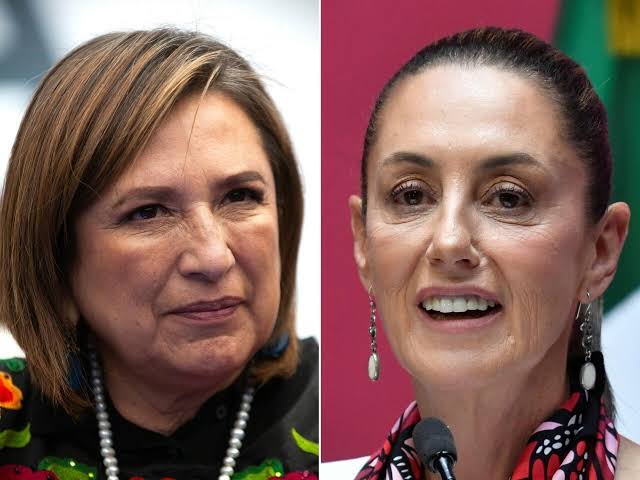Mexico election race heats up as two women vie for presidency

Campaigning officially commenced on Friday for what could mark a significant milestone in Mexico’s political history—a potential first female president in a country entrenched in a culture with strong macho traditions.
Opposition candidate Xochitl Galvez initiated her campaign in the early hours of the morning in one of Mexico’s most perilous states, aiming to resonate with voters deeply concerned about the nation’s pervasive violence.
According to public opinion polls compiled by the Oraculus research firm, Galvez faces an uphill battle against ruling party candidate Claudia Sheinbaum, a former Mexico City mayor and close confidant of the outgoing President Andres Manuel Lopez Obrador, popularly known as AMLO. Sheinbaum, a 61-year-old scientist, currently holds a substantial lead with 63 percent support, while Galvez, also 61, trails with 31 percent. Jorge Alvarez of the Citizens’ Movement party lags significantly behind with just five percent support.

The forthcoming June 2nd election carries significant weight for Latin America’s second-largest economy, a nation of 126 million people and a crucial trade partner of the United States. However, Mexico grapples with immense challenges ranging from illegal migration to drug-related violence, elevating the stakes for the upcoming political transition.
Galvez, a vocal businesswoman with Indigenous heritage, chose to emphasize the country’s insecurity with a nighttime rally in the city of Fresnillo, situated in the violence-stricken central state of Zacatecas. During the rally, she led a candle-lit march through the streets and paid homage to victims of violence, criticizing Lopez Obrador’s strategy of “hugs not bullets” and advocating for a more robust approach to combat criminal organizations.
Sheinbaum, closely aligned with Lopez Obrador’s policy agenda, enjoys considerable support owing to her affiliation with the incumbent president, who maintains an impressive approval rating of nearly 70 percent. Analysts suggest that Galvez faces formidable odds in challenging Sheinbaum’s dominance, citing Lopez Obrador’s popularity and the robust machinery of the ruling party.
Addressing her supporters in Mexico City’s main square, Sheinbaum reaffirmed her commitment to the future while dismissing her opponents as representatives of the past. Galvez, backed by an opposition coalition comprising the Institutional Revolutionary Party, the National Action Party, and the Party of the Democratic Revolution, stands out from the traditional conservative opposition with her Indigenous attire, colloquial language, and distinctive mode of transportation—bicycling around Mexico City.














